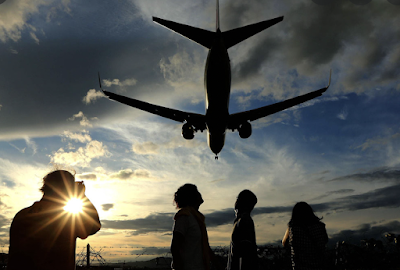A Failure in the AIR21 Statute
AIR21 is known as the whistleblower law for airlines. Most recently, because of the cover-ups at Boeing and the ensuing MAX crashes, aircraft manufacturers were brought into the AIR21 statute to protect those employees as well. But how effective is this law? While it appears that employees are protected, in truth, the AIR21 statute enables employers to retaliate with minimum risk to their bottom line and zero accountability.

The ARB has confirmed the company violated federal law with high-level executives’ knowledge and involvement. Those executives paid a doctor $74,000 to give a pilot a false medical diagnosis. That doctor even forfeited his medical license to avoid prosecution for his actions. However, the executives, in-house attorneys, and in-house doctor who instigated the deception and deceit, by paying the doctor for a false report, are another story. Most of these people have been promoted within the company. Now you ask… how could any of this occur in todays world? How could any judicial body challenge an award, asserting under these Godforsaken circumstances that the pilot did not suffer enough for what transpired? The company’s appeal likely cost more than $500,000.
The door to that case is not closed. The ARB compared the pilot’s pain and suffering to a manager at the Georgia power company who was awarded $250,000 back in 1989. The equivalent to those dollars in today’s market is approximately $465,000. Yet, the question must be asked, why aren’t punitive damages also allowed for AIR21 complaints? They are in other statutes.
Punitive damages, also known as exemplary damages, are an award of money over and above compensatory damages. The purpose of these damages is to punish for violations in which respondents are aware that they are violating the law or where the violations involved egregious misconduct…
Punitive damages are awarded when the respondent’s conduct is motivated by evil motive or intent, or the conduct demonstrates reckless or callous indifference to the federally protected rights of others. In determining whether to award punitive damages, investigators should focus on the character of the respondent’s conduct and consider whether it is of the sort that calls for deterrence and punishment over and above compensatory damages. (Whistleblower Manual pg 143).
Believe it or not, the very law that is designed to protect the traveling public has no teeth to protect those who step forward. AIR21 is a statute under OSHA. And OSHA allows for punitive damages for other statutes, just not for the AIR21 statute. Ironically, those employees that are protected with punitive damages include: Federal Railroad Safety Act Whistleblower Protection Provision (FRSA), National Transit Systems Security Act (NTSSA); and Seamans Protection Act (SPA). These statutes allow for punitive damages for egregious and illegal behavior. But not in the airline industry. Why not?
To put this in perspective… travelers by sea, the railroad and the transit system are protected because employers are less apt to retaliate against employees for bringing forth safety due to the availability of punitive damages, more than those passengers flying on an airliner. Airline employees, and now aircraft manufacturer employees, despite the law, are silenced daily. They will continue to be silenced unless this law is changed.
In those other statutes, punitive damages are awarded "when a management official involved in the adverse action knew the adverse action violated the relevant whistleblower statute before it occurred, or the official perceived there was a risk that the action was illegal but did not stop or prevent the conduct." (Whistleblower Manual pg. 144).
However, in the airline industry even if top level management such as a VP or SVP of flight operations were the very people who retaliated against an employee, and the CEO sat on the sidelines watching and did nothing to stop it, there are still no punitive damages, despite the egregious and illegal behavior of those airline executives. Grounding of a pilot that may last for years, or termination of a mechanic or flight attendant is unconscionable.
Imagine a young man with a family to feed, a mortgage to pay, and he loses his job because he refused to sign off an un-airworthy aircraft. Without an income how does he employ an attorney? Attorneys cannot take these cases on contingency. Not only is there no endgame reward, but the employee is only awarded “reasonable” attorney fees, not necessarily all they incurred. Whereas the airline can throw any disgusting amount of stockholder profits to outside law firms, even if they have an indefensible case. How does an airline hide money they pay to a doctor for such corrupt actions from the stockholders? They itemize the doctor as a “vendor”. How does an airline hide money for attorneys in such cases? That is simply a business expense. What recourse does an employee have?
Imagine a pilot who was unjustly removed from duty for 2 years. Then spent six-years of pain and suffering while fighting for his career, fighting for justice, battling the stress that consumed his health and the health of those that he loves. Legal fees well over the half-million dollars continued to accumulate. Not knowing if he will ever get his attorney fees returned. Mortgaging his home and selling another to finance the challenges. Then the administrative review board (ARB) confirms that top level executives’ behavior was egregious, and they were guilty of federal violations. Yet, this body determines the employee did not suffer enough to deserve the compensatory damages that had been awarded. However, if punitive damages were allowed, legally they would have been the highest level based upon the facts of the case.
Now imagine that pilot was a woman, and a HIMS AME (FAA doctor) told her that airlines buy doctors and it was “a dirty business” they all knew about. That her airline had attempted to engage him, but he could not be bought, only silenced. The company went elsewhere. He then tells her that all the doctors are talking about her. He also wrote on an aviation social media platform that the pilot is medically unfit to fly, and she only returned to the airline because she was in bed with management. How much pain and suffering must a pilot endure?
Furthermore, do you believe that if an airline spends millions to destroy a pilot, loses in court, and then loses their appeal as well, and they are only slapped on the hand with limited compensatory damages, that this law will deter them for repeating their illegal behavior? I don’t think it will. While the AIR21 statute does not limit compensatory damages, those subjective views can, and to the detriment of safety and pilots willingness to report.
The AIR21 Law could simply be a placebo for the traveling public and naive employees who think they are protected. Granted this is all we have. However, one might think a pilot would be crazy to take on an entire airline with the entire executive force involved, all the way up to the CEO, as well as the knowledge of the Board of Directors. Add the FAA administrator into that mix.
What I have learned about this law and perhaps the legal system in general, is that even when you win you lose. Because, without punitive damages the airlines and manufacturers will continue to play their illegal games, working around federal regulations, and threatening employees who have no real protections if top-level management is involved. When those very people who are proven in a court of law have committed federal violations that impact passenger safety, are allowed to be promoted or continue on status quo who does the pilot turn to?




No doubt it is an outrage. Flight attendants are in the same boat. After more than two years, I’m still waiting on a judges review. Let’s push this. Let’s stand together.
ReplyDeleteYes... there are pilots for more than two years. Sometimes it takes OSHA 2-6 years before they rule, then the next process starts. I will change this law. There is a huge imbalance and this will impact safety. Thanks for your comment!
DeleteI didn’t realize you can’t get punitive damages. Why would anybody whistleblow? Is it because it’s a joint FAA OSHA law? This makes no sense except that it is corrupt… 🤬
ReplyDeleteKathy, the point is... it is not whistleblowing per se, it's identifying safety concerns and reporting them to the company. Then they retaliate. That's another issue... changing the name of this law. Regardless, people will definitely think before they report safety concerns. The battle and protections at the end of the day are not there. This lack of punitive damages definitely impacts safety. And about the FAA... Yes, AIR21 is a joint OSHA/FAA statute. I think you may have identified the problem. The FAA is protecting the airline more so than the traveling public and airline employees. Won't be the first time. Thanks for your comment!
DeleteJust sent you an email with an idea.
ReplyDeleteJim W
I will read when I get some time at my computer this evening. Thank you!!!
DeleteHi Karlene:
ReplyDeleteYou wrote an excellent observation.
Another part of the story is the Office of Special Counsel (OSC). Their job is to investigate AIR.21's and enforce them/take them to court. But, there is a slight problem, I was told the Federal Government hired around 100 employees into OSC spread across the USA. In Texas the OSC has no office, the nearest office to Texas is in Oakland, CA. When the WhistleBlower law as created it covered many things. But, as the years passed the Judges ruled in favor of management time after time. To where today the AIR.21 for all purposes is just a you explained.
Thank you for sharing that about the OSC. I had no idea. When an FAA administrator can leave office and walk onto an airline's board of directors, there is a conflict of interest. I find it most interesting that all the other transport statutes provide punitive... why not the airline?
DeleteThanks for your comment. We have work to do!
Hi Karlene, unfortunately Technology, Engineering and Science are like a Cheetah; while lawmakers come behind after them at snail speed to use what the former created to make money (not enough lines here to ditch deeper), Money is the name of the game . At the end nothing can change that....
ReplyDeleteHenry, that is a great visual... and so true. But, I do believe we should hold people accountable when they place others safety at risk. Can we change that? I'm thinking it's worth a try.
Delete